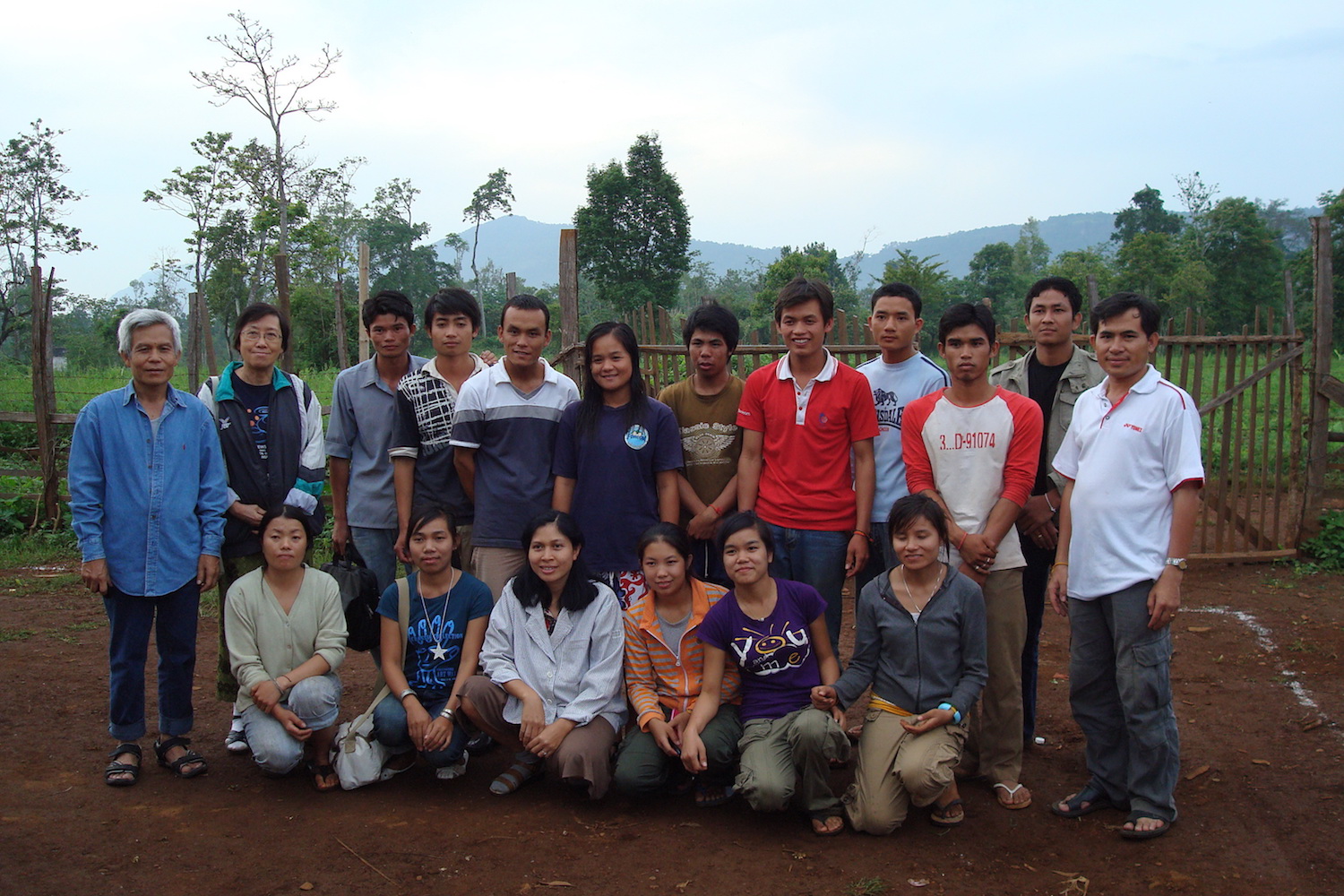Al Jazeera: 15 December 2013
Sombath Somphone disappeared a year ago after police stopped him, but officials remain silent on his fate.

The case of 61-year-old Sombath, described as “farmer, scholar, scientist and community developer” by one of the groups he founded, has been taken up by the United States and Europe, but Laos’ Communist-led government has maintained an almost complete silence.
Ng says since the police told her they were investigating the disappearance, she’s heard little more.
“I have no further information,” she told Al Jazeera on the phone from the Thai capital Bangkok, where she was preparing to speak to the Foreign Correspondents’ Club about Sombath’s life and work.
“The government hasn’t contacted me directly on the progress of the investigation. They say they are investigating, but I don’t know. I have no way of knowing.”

Abduction video
Sombath’s abduction was captured on CCTV footage, which police allowed Ng to copy. Driving home from the office to have dinner with his wife, the grainy video shows Sombath stopping his jeep at the side of the road at the request of traffic police.
Throughout the 15 minute clip other vehicles continue to pass in both directions. Eventually, Sombath gets into a different vehicle with two other people and is driven off. As Sombath is taken away, a passenger on a motorcycle in front appears to fire a shot into the air.
Throughout the past year, civil society and human rights groups, including Amnesty International, have sought to keep Sombath’s abduction on the international agenda. Amnesty has described the police investigation as “inadequate”, accusing Laotian authorities of a “cover up” and criticising officials for not keeping Ng and family members with a legitimate interest in the investigation updated on its progress.
With 12 months gone and no developments, Rupert Abbott, Amnesty’s researcher for Cambodia, Laos and Vietnam, says there needs to be official accountability.
“Now it’s a year,” he said on the phone from Cambodia’s capital, Phnom Penh. “There’s still no information and fears for Sombath are growing. Why is no one being held accountable for what happened at the police post?”
International pressure
Governments, including representatives from the European Union and the United States, have also expressed their concern. In August, in an unusual move for international diplomats, officials hung a giant banner with the words “Return Sombath” from a city water tower as a reminder of the civil society veteran’s disappearance. His case was also taken up at the November roundtable meeting of donors.
Why is no one being held accountable for what happened at the police post? –Rupert Abbott, Amnesty International
US Ambassador Daniel Clune, who arrived in Vientiane in mid-September, says the diplomatic community also raised the abduction with Lao President Choummaly Sayasone after the donor meeting.
“The president said he was very concerned about the disappearance and the government would continue to investigate,” Clune told Al Jazeera from Vientiane. “We take the president at his word. We remain deeply concerned over Sombath’s fate.”
Although Laos’ economy has grown rapidly in recent years – averaging about 7.5 percent a year since 2004 – more than a quarter of the population continues to live in poverty in a country the UN counts among the world’s least developed.
Groups such as the Participatory Development Training Centre (PADETC), which was founded by Sombath with the permission of the Lao government in 1996, play an important role in the country’s development, providing education and training and helping ensure all Lao people, many of whom still live as subsistence farmers, benefit from economic growth.
Award-winner
Despite recent expansion, Laos remains reliant on international donors, who provided some $387 million in assistance in 2011, according to the OECD.
The biggest, Japan, hosts the annual Japan-ASEAN Summit on Sunday, the same day one year ago that Sombath was taken away. Human rights groups have urged Japan to use the opportunity to press home concerns about Sombath’s well-being.

“Japan’s words carry weight because it is the largest donor to Laos. Japan should work with other international donors to make clear that they will not let this rest until the Lao government provides full information regarding Sombath’s case.”
Six months before he disappeared, Sombath – who won the Ramon Magsaysay award, seen as the Asian Nobel prize – for community leadership in 2005, decided to step down as chairman of PADETC. Ng says his plan was to let younger people take over and relax a little; spend more time with the family.
She hasn’t given up hope that her husband of 30 years will return.
“I do not know [if he’s still alive],” Ng says. “I have to hang onto that hope. Without that I have nothing.”
